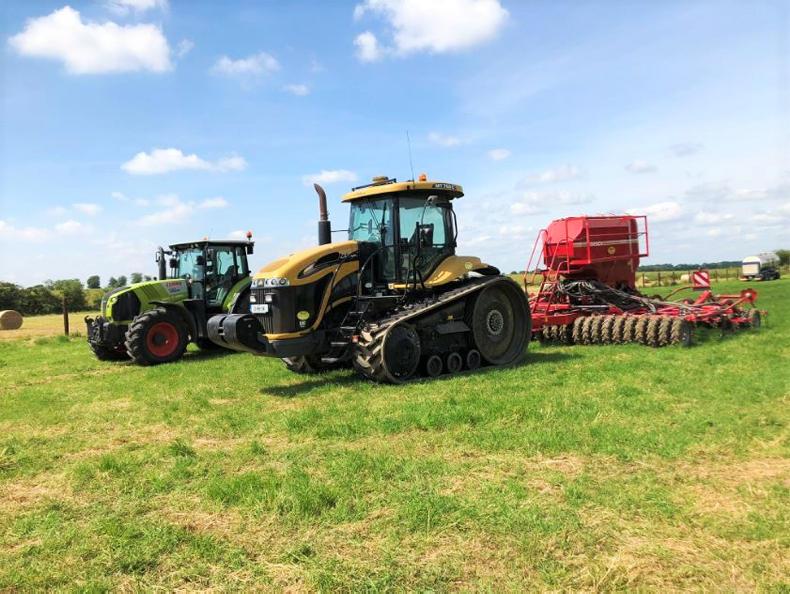Over 150 farmers and members of the agricultural industry gathered for the first From the Tramlines farm walk, which took place in Clonee, Co Meath, on Thursday.
The theme of the walk was ‘Getting ready for harvest 2019’ and many of the talks centred on this.
During the walk, we heard from our 2018 Tramlines farmer and host for the day Martin Hoste.
Transition
Martin has been farming in Belgree Farm since 1978 along with his wife Cepta.
Martin explained the transition from a conventional plough-based system to a minimum tillage system began in 1988.
After much trial and error between shallow and deep cultivation, he eventually found the winning formula and, as a result, the farm hasn’t been ploughed in 20 years.
Tramlines 2018 farmer speaking to @StephenRobbFJ about the start-up of his tillage farm. “If you look after your soil, it will look after you, it is your bread and butter”.?? pic.twitter.com/3uHw38y52O
— FJ Tillage (@FJTillage) July 4, 2019
Protecting the soil at harvest
Among the speakers at the event was Dermot Forristal of Teagasc Oak Park.
He explained the challenges of minimising compaction at harvest time.
Bigger machinery, heavier axle weights and inadequate tyres are just some of the causes of soil compaction at harvest time.
The risk of damage is heightened when soils are lower in organic matter and when the soil is wet.
Dermot Forristal of @teagasc giving a talk at today’s ‘From the Tramlines’ farm walk. @farmersjournal @FJTillage @CortevaUK pic.twitter.com/VaR1jjtQb6
— FJ Machinery (@FJMachinery) July 4, 2019
Some of the solutions to these challenges include running low ground pressure tyres, although the cost of these could be a deterrent.
Controlled traffic systems at harvest time, whether when cutting grain or baling/gathering straw, can be one simple method of reducing soil compaction.
This was just one of a number of aspects covered by Dermot and the seven other speakers on the day.
More in next week’s Irish Farmers Journal.






 This is a subscriber-only article
This is a subscriber-only article










SHARING OPTIONS: